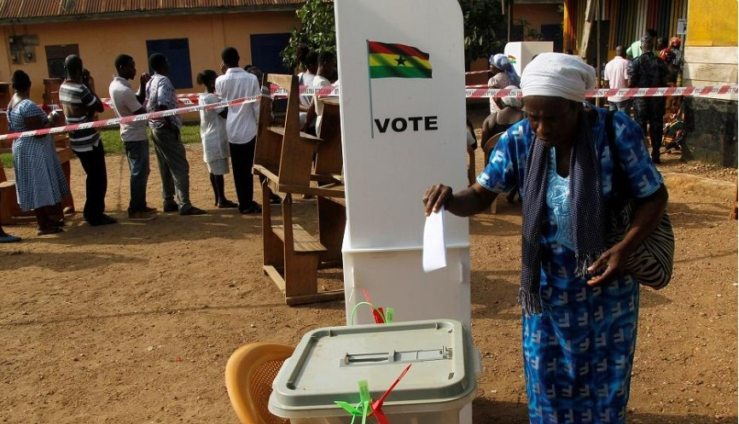Stakeholders mandated to safeguard Ghana’s fledgling democracy have been urged to be vigilant of groups and individuals who seek to interfere with the election processes to influence the outcomes.
Professor Seidu Alidu, the Head of Political Science Department, University of Ghana, said people with vested interests may meddle in the country’s elections taking advantage of all kinds of vulnerabilities in the system to achieve their aim.
He explained that election interference was a purposeful action undertaken by state or non-state actors with the intention to influence the results.
“Thus citizens and all institutions responsible for protecting the sanctity of Ghana’s elections must be vigilant to detect any such moves as early as possible to nip them in the bud and protect our democracy,” he said.
Prof Alidu was speaking at a training workshop on “Managing the Risk of Election Interference in Ghana’s Election 2024” in Accra on Thursday.
The workshop, organised by the Institute for Democratic Governance (IDEG), was attended by the media, representatives of the security agencies, the Electoral Commission, National Commission for Civic Education, and political parties, among others.
It aims to sensitise participants on the strategies, nature and type of influence and manipulation in order to design preventive measures to counter them.
“Election meddling subverts the true will of the people and creates unfair electoral outcomes, which could lead to instability and further weaken the legitimacy of the democratic process,” Prof Alidu said.
The exposure of citizens and stakeholders to the electoral processes would empower them to be alert of possible interferences, which may manifest in different forms, and enhance their capabilities to help prevent same.
“If people are planning that kind of intervention, they should backoff because citizens are aware and they will be the vigilantes of our democracy,” he said.
Dr Joyce Manyo, Research Fellow, IDEG, making a presentation on: “Mechanism for Election Interference” noted that those who may interfere in the elections may employ misinformation to distort the media environment.
Some of the major methods of content manipulation include propagandistic news, fake news, paid commentators, bots (automatic accounts) and takeover of social media accounts.
She urged the relevant institutions, including the media, security agencies and individuals to be the watchdogs because if each one played his or role as expected, no external body could take advantage of the process.
Latest Stories
-
GMeT warns commuters of intensified harmattan conditions
3 minutes -
Honda and Nissan join forces to take on China in cars
4 minutes -
CETAG threatens indefinite strike over breach of agreements
30 minutes -
Fifty 50 Club lauded for impactful social interventions
36 minutes -
Konongo and its environs risk water shortage as Owerri River ‘stops flowing’
47 minutes -
Dr. Stacy Amewoyi launches new books and expands philanthropic efforts across Ghana and US
53 minutes -
Hindsight: Legon Cities’ five years of fugazi money
1 hour -
JoyNews’ Kwasi Debrah ties knot with Dr. Neta Pasram in beautiful ceremony
1 hour -
Wimbledon winner Purcell admits anti-doping breach
1 hour -
Political party influence undermines leadership independence, says Prince Kofi Amoabeng
2 hours -
CHASS advises against reopening schools on Jan. 3 until financial arrears are cleared
2 hours -
Newmont’s Akyem Vocational Institute unveils battery-powered fufu machine at graduation ceremony
2 hours -
Newmont reinforces cultural heritage commitment in host communities
2 hours -
Oti Region records over 10 road accident deaths from January to September this year
2 hours -
Ecobank Ghana inaugurates ‘Ecobank Retirees Association’: A legacy of fellowship and service
2 hours

